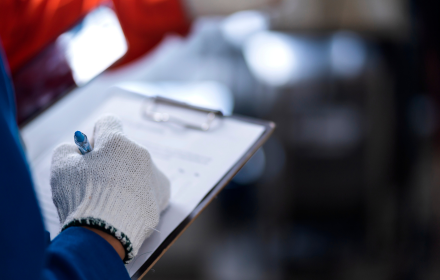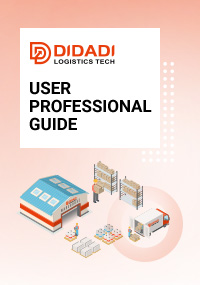Factory vs Trading Company in China: What’s the Difference and Which Should You Choose?

When sourcing products from China, one of the first questions every importer faces is: Am I working with a factory or a trading company?
At first glance, both might seem similar. They speak fluent English, offer product catalogs, quote prices, and handle exports. But behind the scenes, their business models are very different — and those differences can significantly affect your price, quality control, lead time, and communication.
Understanding whether you are dealing directly with a manufacturer (factory) or a middleman (trading company) is essential for managing risks, negotiating effectively, and protecting your business interests.
In this article, we’ll explain the key distinctions between factories and trading companies in China, their pros and cons, how to identify which type you’re dealing with, and how a professional China 3PL partner like DIDADI Logistics can help you manage both types smoothly.
A factory is a company that produces goods directly. It owns the production equipment, employs workers, manages the manufacturing process, and controls material sourcing and quality.
Factories in China vary widely in size — from small workshops with a few dozen workers to massive industrial plants producing for global brands.
Key characteristics of a factory:
Owns production lines, machinery, and tooling
Can customize products and make OEM/ODM designs
Usually located in industrial zones or manufacturing hubs (e.g., Shenzhen for electronics, Yiwu for gifts, Dongguan for plastics)
Has limited English communication skills compared to traders
May not always have export licenses (some rely on trading companies for export documentation)
Advantages of working directly with factories:
Lower prices: No middleman markup.
Better technical understanding: You can discuss materials, molds, and specifications directly with engineers.
Faster communication about production changes: Direct control over manufacturing schedule and modifications.
Higher long-term collaboration potential: Once trust is built, you can co-develop exclusive products.
Disadvantages:
Higher MOQs (Minimum Order Quantities): Factories prefer bulk orders for efficiency.
Limited product range: They specialize in one or few categories.
Language barriers: Some factory managers have limited English fluency.
Less flexible customer service: Their focus is production, not sales.
A trading company acts as an intermediary between buyers and factories. It doesn’t own manufacturing facilities — instead, it sources products from multiple factories and resells them.
Trading companies usually operate from office buildings rather than industrial areas. They have sales teams skilled in communication, sourcing, and export documentation.
Key characteristics of a trading company:
Does not own manufacturing equipment
Works with multiple factories, often in different product categories
Provides one-stop sourcing and export services
May handle quality checks, packaging, and shipping coordination
Often registered in cities like Guangzhou, Ningbo, or Yiwu
Advantages of working with a trading company:
Easier communication: Most traders speak fluent English and understand international trade.
Access to diverse product categories: They can source multiple types of goods from different factories.
Lower MOQs: Traders consolidate small orders from multiple buyers.
Streamlined logistics: They can arrange export and shipping under one roof.
Disadvantages:
Higher prices: They add margins on top of factory costs.
Less transparency: You may not know which factory produced your goods.
Limited quality control: Traders rely on factories for production standards.
Risk of misinformation: Some trading companies pretend to be factories.
Many suppliers on platforms like Alibaba, Made-in-China, or Global Sources claim to be “manufacturers.” In reality, many are trading companies using factory photos and certificates for marketing.
Here are practical ways to verify what type of company you’re dealing with:
1. Check the Business License
Ask for a copy of the supplier’s Chinese business license. If the business scope mentions words like “manufacturing” or “production”, it’s likely a factory. If it lists “trading”, “wholesale”, or “sales agency”, it’s a trading company.
2. Look at the Address
Factories are usually located in industrial parks or rural manufacturing zones. Trading companies tend to be in office buildings or downtown commercial areas.
3. Ask for a Factory Audit or Video Call
Request a live video call from the production floor, or hire a local inspection agency to verify the site.
4. Review Product Range
If a supplier offers many unrelated products (for example, USB cables, ceramic mugs, and fitness bands), it’s almost certainly a trading company. Factories typically focus on one or two product categories.
5. Ask Technical Questions
Factories can discuss materials, machinery, molds, and processes in detail. Trading companies often provide vague answers or need to “check with the factory.”
6. Check Export License Ownership
Some factories rely on traders with export licenses. If your supplier says another company will handle the export process, you’re likely dealing with a manufacturer behind a trading partner.
There’s no one-size-fits-all answer. Both factories and trading companies have unique advantages depending on your business stage and goals.
Choose a Factory if:
You have stable order volumes and need lower unit prices.
You want to develop custom products (OEM/ODM).
You can handle communication and quality control directly.
Choose a Trading Company if:
You’re testing new products and prefer small MOQs.
You need multiple product types from different categories.
You value convenience, flexibility, and English communication.
In practice, many importers use a combination of both — working with factories for core products and trading companies for accessories, packaging, or niche items.
Regardless of whether you buy from a factory or a trading company, one challenge remains constant: logistics, quality assurance, and supply chain transparency.
This is where a China-based 3PL (Third-Party Logistics provider) like DIDADI Logistics adds tremendous value.
Here’s how DIDADI Logistics supports both factories and trading relationships:
1. Secure Warehousing and Repacking
Products from multiple suppliers can be consolidated in our China warehouses, repackaged, and prepared for Amazon FBA or direct B2B shipping under strict confidentiality.
2. Transparent Coordination
DIDADI acts as your local representative, keeping you informed about production status, supplier communication, and logistics without exposing your entire supply chain to every vendor.
3. DDP Shipping from China to Global Destinations
We handle DDP (Delivered Duty Paid) shipping to the USA, EU, and other major markets — managing customs clearance and last-mile delivery so your shipments move smoothly.
Working with DIDADI Logistics means you get the flexibility of both worlds — factory-level pricing with trading-level convenience — backed by a transparent, secure logistics network.
The most successful importers don’t rely purely on luck or price — they build structured systems that balance cost, quality, and reliability. Here’s a simple framework:
Use Trading Companies for Market Testing: Source small batches to evaluate product-market fit.
Transition to Factories for Scaling: Once demand stabilizes, switch to direct factory relationships for better pricing and customization.
Use a 3PL Partner to Control Operations: Let a local logistics partner manage quality control, consolidation, packaging, and export — ensuring consistency across suppliers.
This approach gives you both flexibility and control, while minimizing risk.
Understanding the difference between a factory and a trading company in China is crucial for successful sourcing. Factories offer better pricing and control, while trading companies offer convenience and variety. The right choice depends on your business stage, budget, and product strategy.
But no matter which route you take, transparency and logistics management are the keys to success. That’s where a trusted 3PL like DIDADI Logistics bridges the gap — providing inspection, warehousing, packaging, and international shipping that keep your supply chain smooth and secure.
DIDADI Logistics helps global importers source smarter, ship faster, and scale confidently — whether you buy directly from a factory or through a trading company.
Recommended Reading















